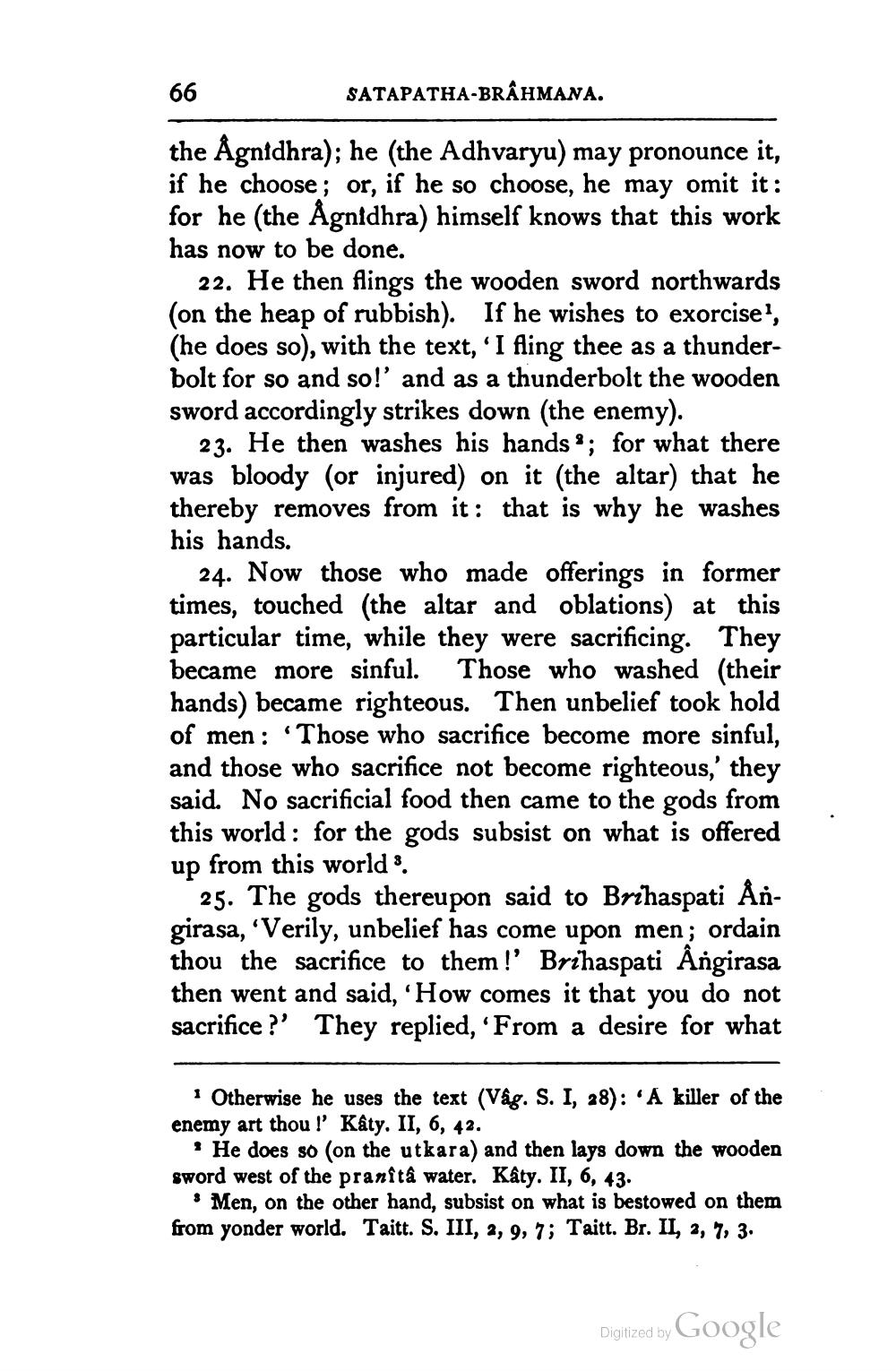________________
66
SATAPATHA-BRAHMANA.
the Ågnidhra); he (the Adhvaryu) may pronounce it, if he choose; or, if he so choose, he may omit it: for he (the Ågnidhra) himself knows that this work has now to be done.
22. He then flings the wooden sword northwards (on the heap of rubbish). If he wishes to exorcise!, (he does so), with the text, ‘I Aling thee as a thunderbolt for so and so!' and as a thunderbolt the wooden sword accordingly strikes down (the enemy).
23. He then washes his hands ?; for what there was bloody (or injured) on it (the altar) that he thereby removes from it: that is why he washes his hands.
24. Now those who made offerings in former times, touched (the altar and oblations) at this particular time, while they were sacrificing. They became more sinful. Those who washed (their hands) became righteous. Then unbelief took hold of men: 'Those who sacrifice become more sinful, and those who sacrifice not become righteous,' they said. No sacrificial food then came to the gods from this world : for the gods subsist on what is offered up from this world 3.
25. The gods thereupon said to Brihaspati Ångirasa, 'Verily, unbelief has come upon men; ordain thou the sacrifice to them!' Brihaspati Angirasa then went and said, 'How comes it that you do not sacrifice ?' They replied, 'From a desire for what
· Otherwise he uses the text (Vág. S. I, 28): A killer of the enemy art thou l' Kâty. II, 6, 42.
• He does so (on the utkara) and then lays down the wooden sword west of the pranitâ water. Kâty. II, 6, 43.
• Men, on the other hand, subsist on what is bestowed on them from yonder world. Taitt. S. III, 2, 9, 7; Taitt. Br. II, 2, 7, 3.
Digiized by Google




